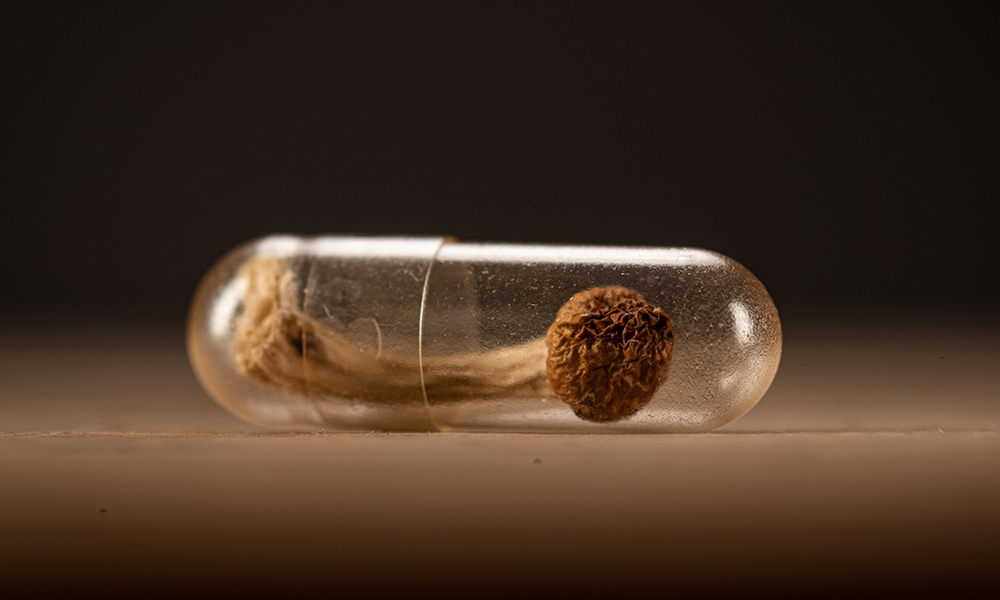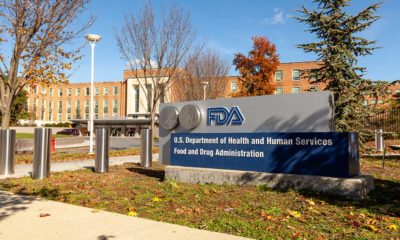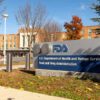
Legal
FDA Issues Guidance for Psychedelics Clinical Trials
The FDA has released new guidance for researchers studying the therapeutic potential of psychedelics including psilocybin, LSD and MDMA.
The US Food and Drug Administration (FDA) has issued new draft guidance that highlights key considerations for researchers conducting clinical trials of psychedelic drugs for the treatment of medical conditions. The move, which was announced by the agency on June 23, marks the first time the FDA has issued guidance for investigating psychedelics, including psilocybin, LSD and MDMA, which have shown potential as possible treatments for serious mental health conditions. The guidance “describes basic considerations throughout the drug development process including trial conduct, data collection, subject safety and new drug application requirements,” the agency said.
“Psychedelic drugs show initial promise as potential treatments for mood, anxiety and substance use disorders,” Tiffany Farchione, M.D., director of the Division of Psychiatry in the FDA’s Center for Drug Evaluation and Research, said in a statement from the agency. “However, these are still investigational products. Sponsors evaluating the therapeutic potential of these drugs should consider their unique characteristics when designing clinical studies.”
Psychedelics For Mental Health
Growing interest in the therapeutic potential of psychedelics has led to research evaluating the drugs as possible treatments for medical conditions, including depression, anxiety, substance misuse disorders and post-traumatic stress disorder (PTSD). Early studies have been promising, and the FDA has granted psilocybin and MDMA status as “breakthrough therapies,” a designation indicating that clinical evidence suggests a therapy shows a substantial improvement over standard treatments for a particular medical condition.
However, the FDA noted when it released the agency’s new draft guidance that studying psychedelics “presents a number of unique challenges that require careful consideration.” The guidelines were developed to advise researchers on study design and other considerations as they develop medications that contain psychedelics, including “classic psychedelics” such as psilocybin and lysergic acid diethylamide (LSD), which are typically understood to be drugs that act on the brain’s serotonin system, as well as “entactogens” or “empathogens” such as methylenedioxymethamphetamine (MDMA).
The FDA noted that many psychedelic drugs produce psychoactive effects that may make them more susceptible to misuse. The guidance also notes that research into Schedule 1 drugs such as psilocybin is subject to tighter controls and must comply with requirements set by the Drug Enforcement Administration (DEA).
“The evidentiary standard for establishing the effectiveness of psychedelic drugs is the same as for all other drugs,” the FDA said. “However, there are unique factors investigators may need to consider when designing their clinical trials if those trials are to be considered adequate and well-controlled. The draft guidance also addresses the role of psychotherapy in psychedelic drug development, considerations for safety monitoring and the importance of characterizing dose-response and the durability of any treatment effect.”
Lawmakers Applaud
Only days before the FDA issued its draft guidance for researching psychedelic drugs, a bipartisan trio of lawmakers in the US House of Representatives introduced legislation to direct the agency to take such action. The bill, H.R.4242, was filed on June 21 by Rep. Dan Crenshaw (R-TX) and Rep. Mariannette Miller-Meeks (R-IO), as well as California Democratic Rep. Ro Khanna. If passed, the legislation would direct the Secretary of Health and Human Services, working through the FDA, to release guidelines for research into medical conditions, including PTSD and traumatic brain injury. After the guidelines were released, the lawmakers behind the bill praised the FDA for taking the step.
“Many Veterans find guided use of psychedelics with assisted therapy as a way to successfully treat the excruciating, post-traumatic pain they face, with better outcomes and less medication side effects,” Miller-Meeks, a medical doctor, said in a statement on June 30. “As a physician, I know the importance of medical research and I am encouraged by the FDA’s support and guidance regarding psychedelic clinical trials. This important step gives our Veterans another option and hope when they feel they’ve run out of methods to cope.”
“I’m glad the FDA is taking this first step of issuing guidance for psychedelic clinical trials—and listening to my bipartisan legislation with Reps. Miller-Meeks and Khanna,” Crenshaw added. “It’s critical we get this right for the researchers doing this important scientific work. We need this guidance to expand clinical trial access so that we can push towards life-saving psychedelic therapies for our veterans, service members, and people living with PTSD, traumatic brain injury, and substance abuse disorder.”
The FDA published a notice about the new draft guidance for psychedelic research in the Federal Register on June 26. The proposal is now in the midst of a 60-day public comment period for interested parties to provide input on the draft and submit suggestions for the agency to consider before adopting a final version of the guidelines.
“By publishing this draft guidance, the FDA hopes to outline the challenges inherent in designing psychedelic drug development programs and provide information on how to address these challenges,” Farchione said. “The goal is to help researchers design studies that will yield interpretable results that will be capable of supporting future drug applications.”


























